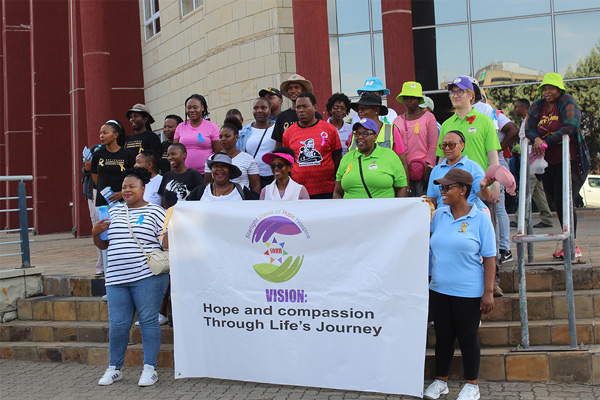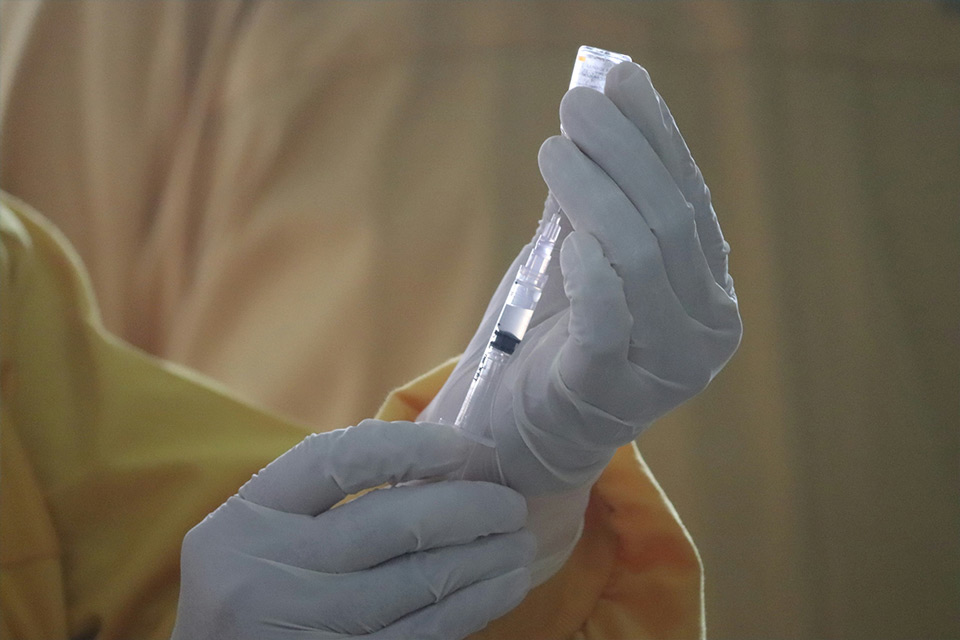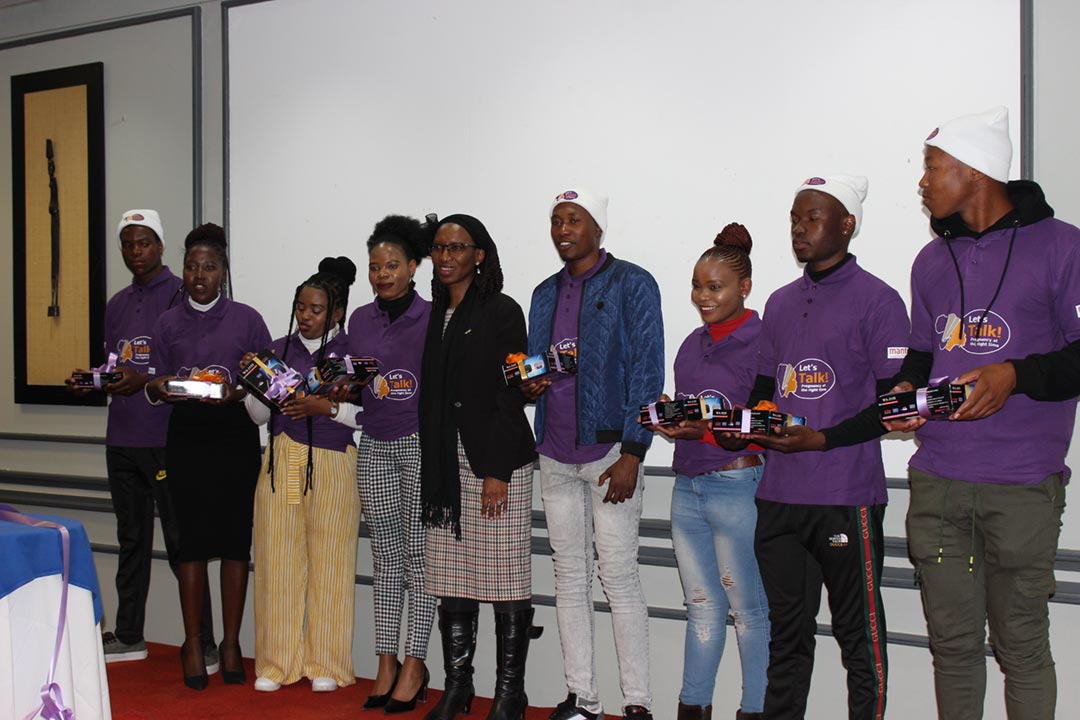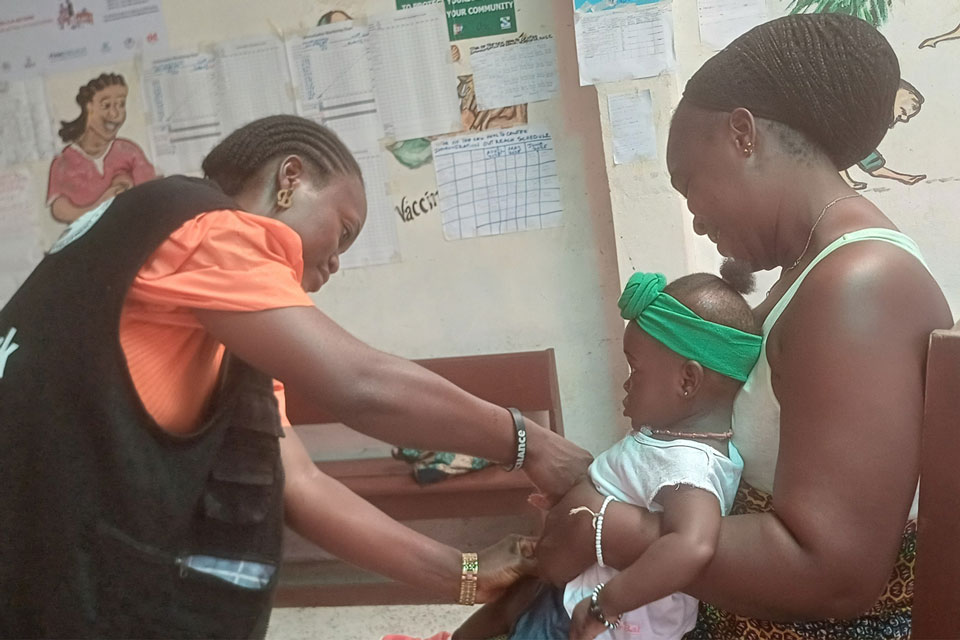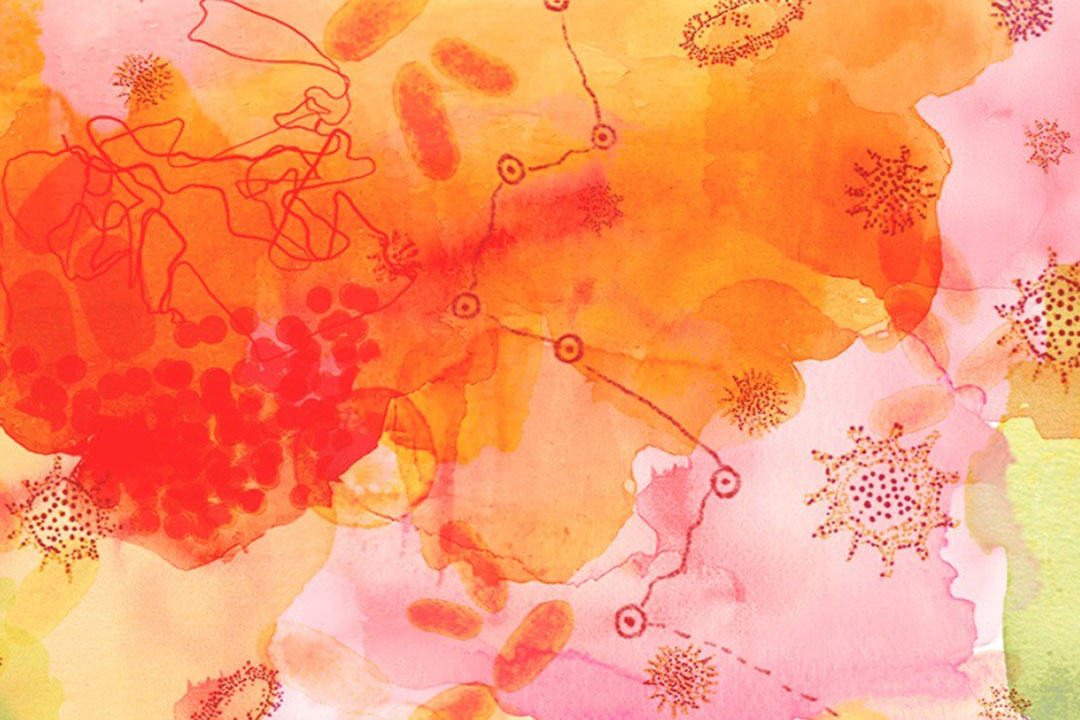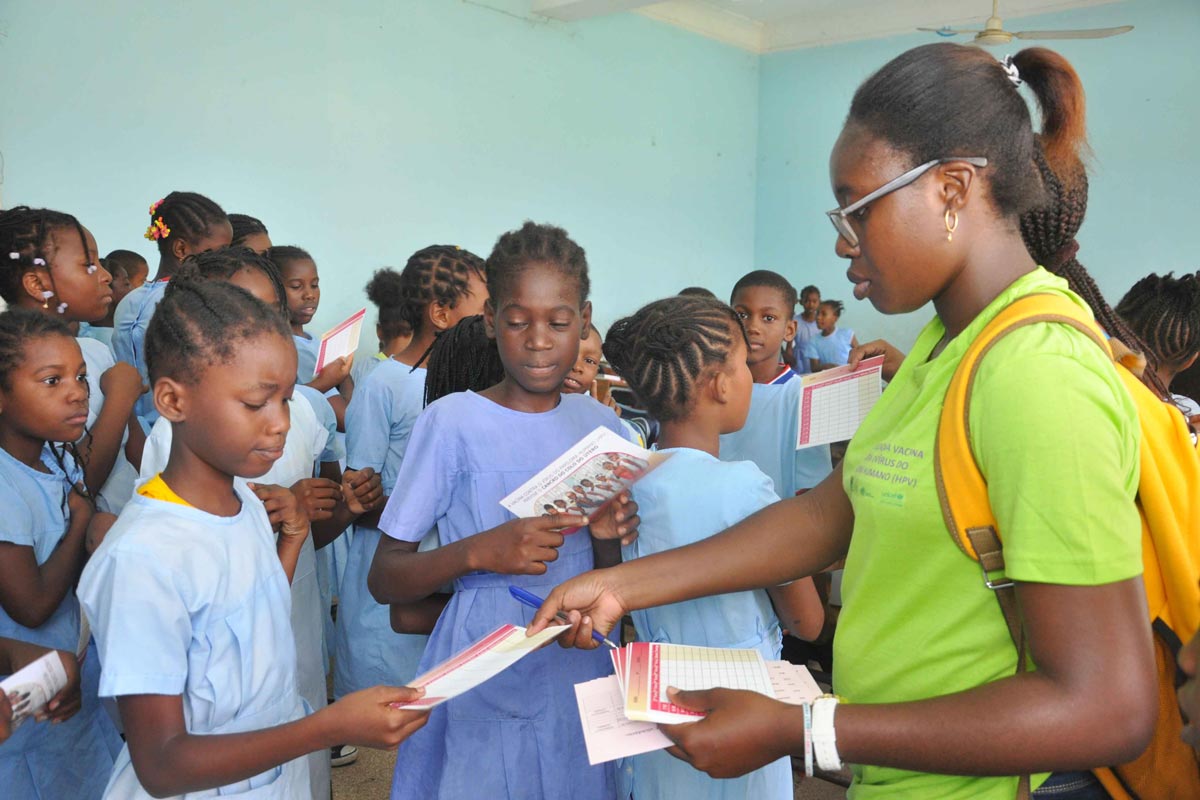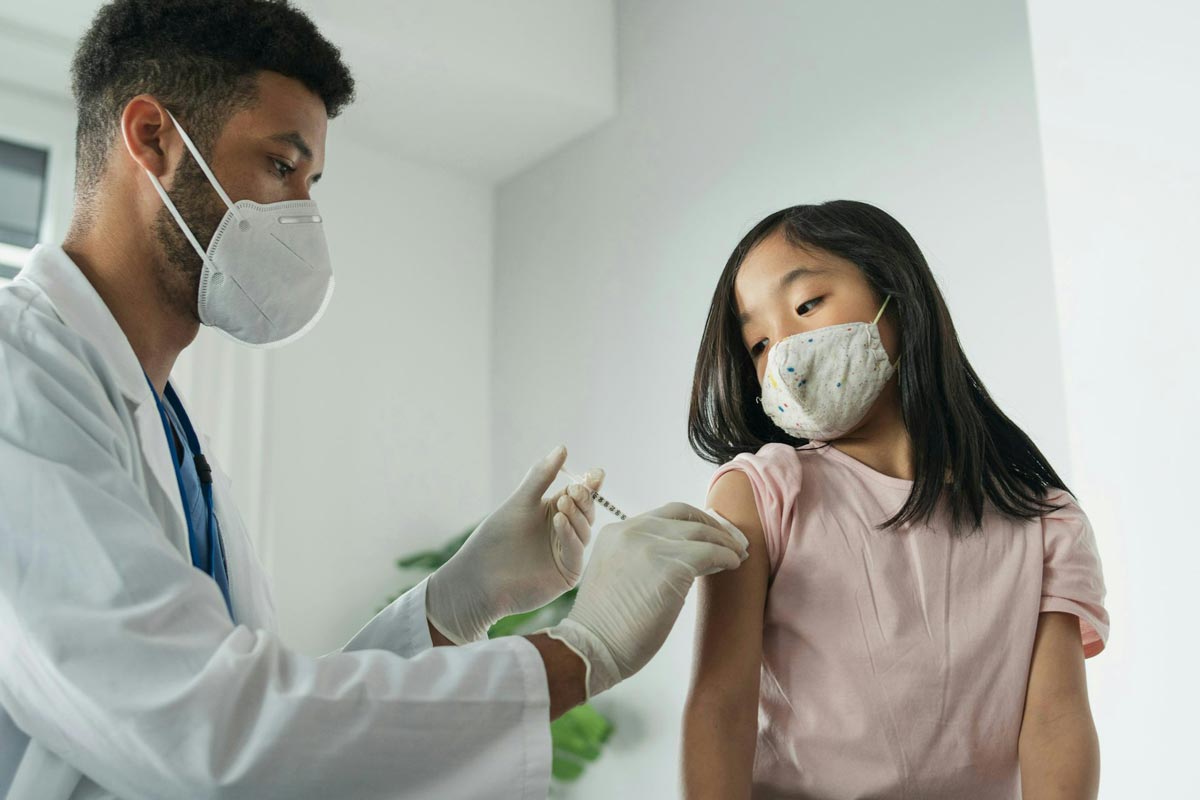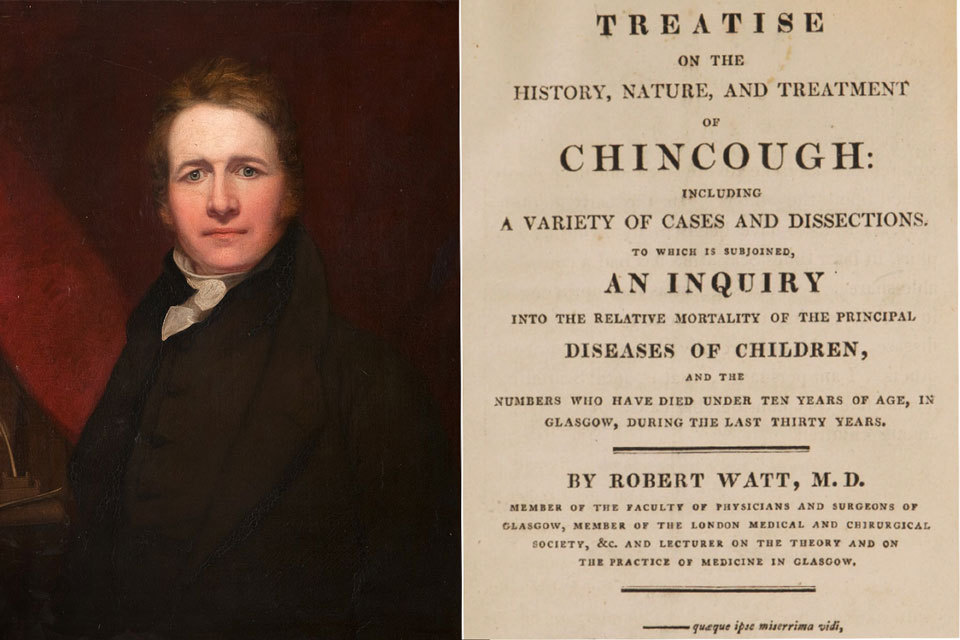In Lesotho, measles vaccination saves lives, saves time and saves money
The cost of an illness that could have been prevented is always too high.
- 7 August 2025
- 5 min read
- by Pascalinah Kabi
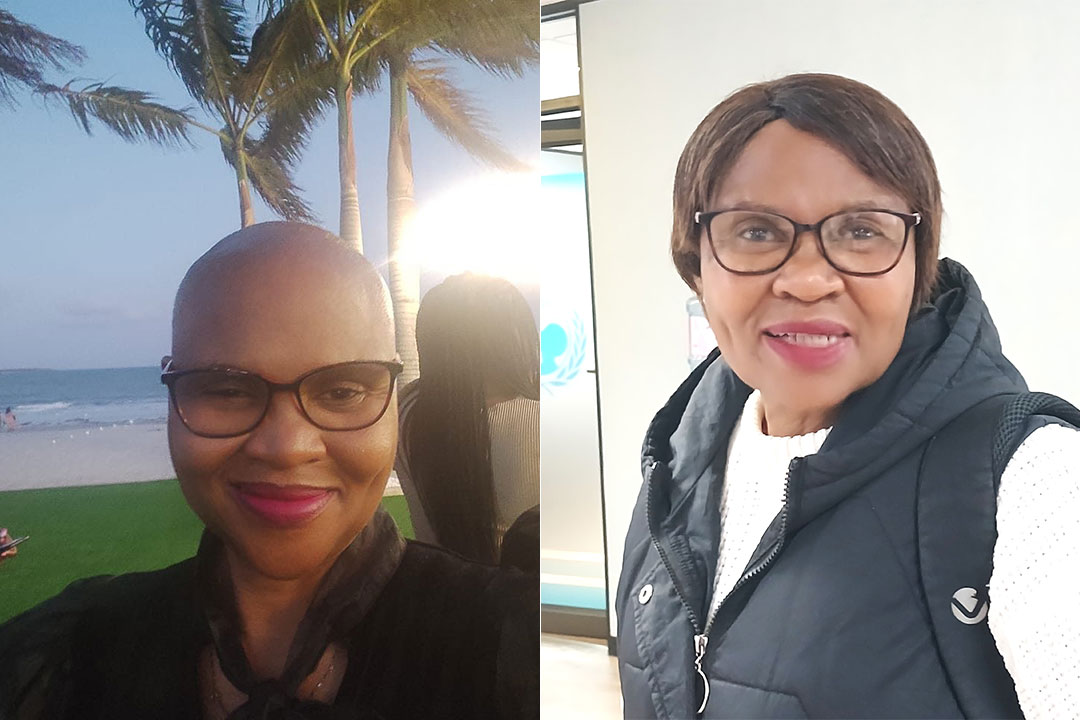
Kefuoe Seitlheko, a 62-year-old father of four from Ha Lesuti in Maseru, believes his ten-year-old daughter was only able to fight off measles without hospitalisation last May because she had received both doses of the measles vaccine as a baby.
“She developed a rash all over her body and her eyes turned red just before schools reopened after the Easter break,” Seitlheko told VaccinesWork in a phone interview on 15 May 2025. The vast majority of children who receive two doses of the measles vaccine, which is 97% effective, will never contract the virus. But some children, such as those with weakened immune systems, may still need to suffer through a milder bout of the illness.
“I took her to a health facility, and they said it was measles and gave her medication. She’s fine now,” he added. “The nurses told us she didn’t suffer serious complications because the measles shots she received as a baby had strengthened her immune system.”
Measles vaccination saves lives
Stories like Seitlheko’s are why Gavi and UNICEF, partners to Lesotho’s Ministry of Health, continue to advocate for immunisation as “one of the most cost-effective public health interventions.” UNICEF implements Gavi-funded projects in the five districts of the country that have the highest numbers of zero-dose and under-immunised children, working through partnerships with civil society organisations.
In emailed responses to VaccinesWork, UNICEF said measles immunisation delivers significant returns on investment by reducing healthcare costs, improving school attendance and boosting long-term productivity.
“In districts with high numbers of zero-dose children, the economic rationale is even stronger: reaching the unreached reduces the risk of outbreaks, lowers emergency response costs and helps break the cycle of poverty linked to preventable illness,” spokespeople said.
Investments in immunisation contribute directly to universal health coverage and equitable development, which are critical for national economic resilience, the agency went on.
Measles can result in lasting and costly after-effects. Measles-related complications can cause permanent disabilities such as blindness or brain damage, which severely affect a child’s ability to learn and thrive.
Seitlheko counts himself lucky that this is a message that he received in time. All four of his children received their measles shots on schedule. “Nurses told us that measles, as preventable as it is, can be deadly – and which parent would want to watch their child die from a preventable disease?”
Have you read?
A loss for a family is a loss for the country
Susan Ramakhunoane from the Ministry of Health’s Expanded Immunization Programme (EPI) department echoed UNICEF’s statement. To “vaccinate a child is cheaper than to treat measles,” she said.
That’s as true for families as it is for the state, Ramakhunoane explained. For parents, vaccines are affordable because the only expense they face is transportation to the health facility, as the government provides immunisation free of charge. However, Ramakhunoane explained that treating measles can become very costly.
“Measles-related complications can cause brain damage, blindness, or other disabilities. This means affected children may require lifelong care,” Ramakhunoane said during a phone call with VaccinesWork.
“Moreover, it represents a loss not only for the family but for the entire country’s economy, since these children could have contributed to building a thriving economy later in life. Economically, vaccinating a child against measles is a wise and valuable investment,” she added.
“Some parents told us that when they had their first child, they didn’t get them vaccinated, and the child was sick regularly. But the children who followed were taken for all their childhood vaccinations and were less frequently ill. They tell us, ‘This one who received their childhood shots is rarely sick,’” Ramakhunoane said.
Peaks – and coverage troughs
But Lesotho’s measles vaccine coverage is still far from comprehensive. Figures for 2024, released recently by the World Health Organization and UNICEF, peg coverage with the second dose of the measles vaccine at 74% – significantly below the outbreak-halting herd immunity threshold of 95%.
The biggest challenge, Ramakhunoane said, are Lesotho’s mountainous areas. In communities across Lesotho’s hill terrain, catch-up vaccination campaigns have been known to be met with mistrust.
“This is when we hear parents share various concerns,” said Ramakhunoane, describing anti-vaccine rumours. “We are not sure where these ideas come from,” she said.
However, an insight from Seitlheko may shed light on why some parents hesitate to trust vaccines offered during outreach campaigns. “Sometimes information from unreliable sources, like on social media, is more accessible and easy to understand than information from authorities,” he said, simply.
Another part of the challenge in the mountains is simply logistical.
“In places where cars can’t reach, carrying vaccines on our backs becomes difficult because we don’t have the funds to hire a helicopter or horses. We have vehicles in the ministry, but the challenge comes when we need money to pay for a horse to get us where we need to go.
“Solutions include sourcing funds from partner donors. Sometimes we successfully secure those funds, and sometimes we don’t. Recent decisions by the US administration have affected many of our partners, creating funding challenges,” Ramakhunoane said.
Despite these challenges, Ramakhunoane said, “We want to reach a point where no child in Lesotho suffers from measles. Even if a child does get infected but has been vaccinated, they are less likely to experience severe complications.”
